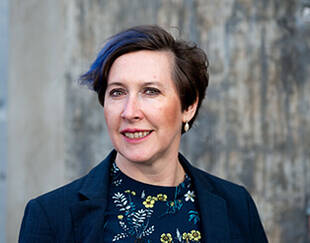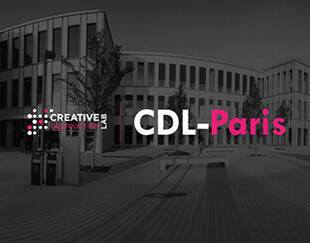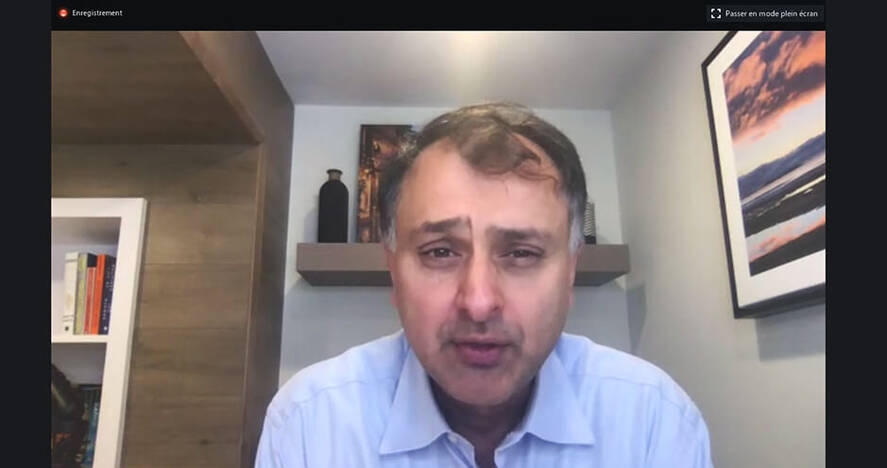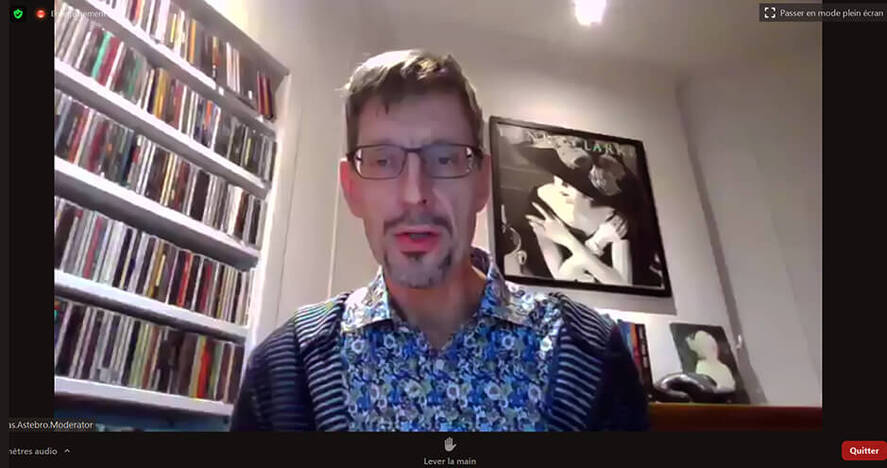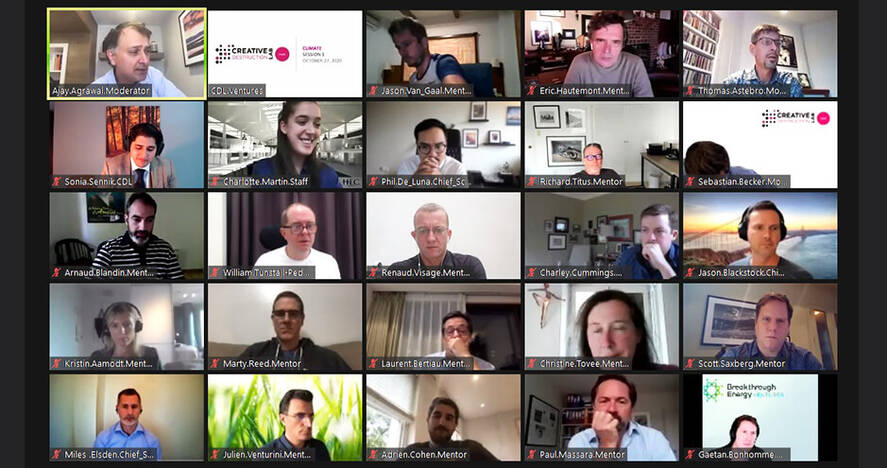Climate Change Startups Kickstart CDL-Paris program
HEC Paris officially launched its nine-month Creative Destruction Lab program, CDL Climate, with an objective-setting session on October 27 devoted to scalable solutions to climate change challenges. It invited 16 startups for intense interactions between its founders, HEC academics, MBA students and experienced entrepreneurs. The session also featured CDL founder Ajay Agrawal and Harvard academic Rebecca Henderson.
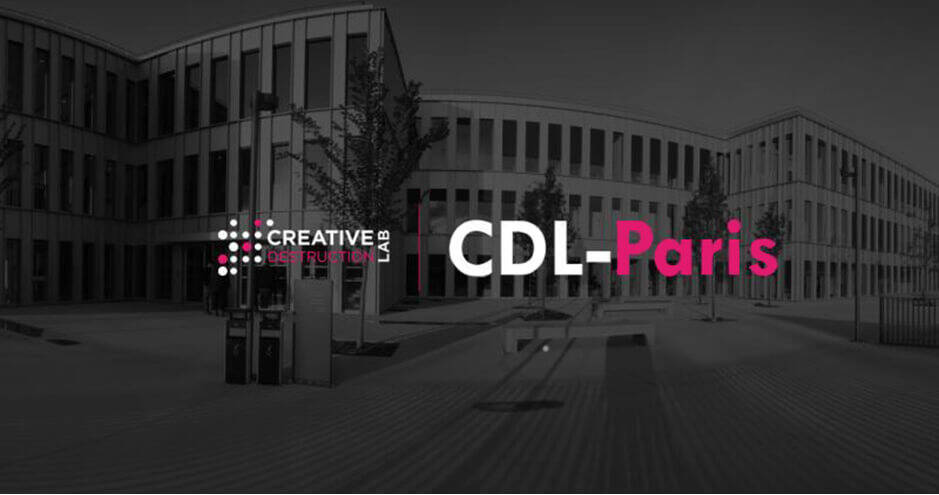
“I’m blown away by what I’ve just witnessed!” Harvard University researcher Rebecca Henderson’s response to the CDL Climate’s opening session at HEC Paris spoke volumes about the unique experience afforded by this program. The online event featured a penetrating scrutiny of the climate-focused startups by the mentors chosen to accompany, boost and, at times, reject their agendas. “This approach could be a tool for reimagining capitalism,” Henderson pursued. “Your exchanges prove how powerful business can be. They pinpoint what technological breakthroughs stand between us and climate-related disaster. One question: can your approach be scaled up?”
The enthusiasm of the author of “Reimagining Capitalism in a World on Fire” was shared by HEC’s MBA Associate Dean Andrea Masini. 30 of his MBA students will be working directly with the companies in CDL-Paris as part of a nine-month certificate offering first-hand experience in all aspects involved in founding a company. “For years, we have been talking to companies about the importance of integrating climate change concerns into their policies,” said Masini. “But this approach needed the kind of structure, competencies and mentoring that CDL proposes.” Now, the students will help the CDL startups evaluate potential markets, develop financial models and explore strategies to scale up their businesses.
Market of Judgment
These are elements that scientist-run startups have been sorely missing in attempts to commercialize their deep-tech companies. In a previous article, we detailed the challenges of only converting 1% of academic research into viable business. Since 2012, Ajay Agrawal has proven that one can successful bridge this gap. His CDL programs have helped cutting-edge science and technology startups bring in over CAD $7.5 billion in equity value. To achieve this, the academic from Toronto’s Rotman School of Management has created a program which fine-tunes a link between technology and science called a market for judgment: a place “where the producers of knowledge meet and mingle with businesspeople and investors.”
On October 27, this judgment market homed in on 16 startups, whittled down from 150+ applicants. Over the course of four hours, they attempted to answer one crucial question: can these ventures be scaled up to become a “massive company”? “You mustn’t think that the applicants are small-scale ventures,” says Thomas Åstebro, the CDL Paris Academic Director. “Some of the startups are already too big for us to really help. Others, well, get weeded out for a variety of reasons – which doesn’t mean the ventures don’t go on to do tremendously well.”
Since the outset in 2012, CDL has been employing a cutting process whereby 40 to 50% of the ventures admitted to the program do not advance all the way to the fifth and final session of the nine-month program – and the HEC CDL Climate was no exception. At the end of each session, the moderators asked the following question about each company that the 30 mentors present saw that day: “Will anyone commit to spending four hours of their time with the founders of this company prior to the next session?” If no mentors raise their hands for a specific company, the company does not receive an invitation to the next meeting.
This is an important aspect of the program because it allows mentors to focus their time and attention on the ventures that they feel best suited to support. It also creates champions among the mentors for specific companies and thereby helps to facilitate the transfer of judgment for the companies who receive extra time.
Remaining companies from the first session are now invited to answer three custom-made objectives set by their mentors. These, according to Agrawal, will allow the startups to prioritize and focus on “must-do” tasks. Often, says the professor in entrepreneurship, these tasks try to answer three uncertainties: “Is there an attractive market? Does the technology work? Can the team execute?”
Rembrandt’s in the Attic
The ventures will have eight weeks to report back on the challenges their mentors have set them. The next session is set for mid-December. In the short exchanges with the startup founders in Session One, advice and warnings came thick and fast: “Technically, your venture remains very risky”; “If you can break the carbon dioxide quandary, I’m buying in”; “The I.T. is all there, but what can be done to protect the intellectual property?”; “You’ve grown the team fast, but you need to make your product sexy for the millennials”; “If you can sell your R&D over a long lapse of time, your customers will buy in”; “You need to find answers to scalability, cost control and medium/long-term planning”. And so on.
The CDL track record has proven that business schools can serve as, in the words of Professor Joshua Gans (CDL’s chief economist), that “nexus between science and technology,” the one that Ajay Agrawal has been forging from the start. “If business schools make the effort,” adds Gans, “I believe that they will discover ‘Rembrandt’s in the attic’ all over the place.” Andrea Masini put it more simply: “You know,” he told the mentors, “I was a failed entrepreneur. Too bad you weren’t around at the time, I might have enjoyed a totally different outcome with your help.”
Read also
